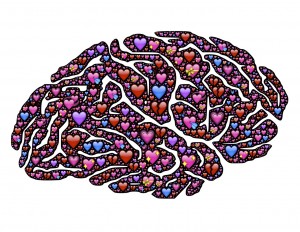Depression and Heart Failure
 When we talk about the heart and matters of the heart, language is ambiguous. Sometimes we refer to the fist-size muscle in the chest. Other times we refer to a centre of feelings. And rarely would we be referring to both at the same time. But perhaps the connection that has only seemed to be a language issue is more real than that. There is, for example, a connection between depression and heart failure.
When we talk about the heart and matters of the heart, language is ambiguous. Sometimes we refer to the fist-size muscle in the chest. Other times we refer to a centre of feelings. And rarely would we be referring to both at the same time. But perhaps the connection that has only seemed to be a language issue is more real than that. There is, for example, a connection between depression and heart failure.
Research on Depression and Heart Failure
Research reported in Circulation: Heart Failure, an American Heart Association Journal, in 2013 found links between depression and heart failure, and revealed that depression severely increased the risk of death for heart failure patients.
The research involved over 400 patients’ statistics for depression and heart failure, and found that:
- the risk of dying was 4 times bigger for patients with moderate to severe depression;
- the risk of dying was 60% higher for patients with mild depression,
when compared to patients who had no depression symptoms.
They also found that:
- patients with moderate to severe depression were twice as likely to end up in the emergency room or be hospitalised;
- patients with mild depression were 35% more likely to end up in the emergency room and 16% more likely to be hospitalised.
Other links between depression and heart failure
The link between depression and heart failure is complex and not entirely understood, however, so we can’t jump to premature conclusions. For example, suffering from depression many times means not “having the energy” for exercise, for eating properly, or for being regular with medications. Depression is also often associated with smoking and abusing alcohol. And all of these are well established risk factors for heart disease.
Nevertheless, studies have shown that depression may also have destructive physiological effects on heart rhythm, blood pressure, stress hormone levels, blood clotting, and an increased tendency toward inflammation. These effects all increase the risk for heart failure.
Treating depression
Regardless of whether a person has heart disease or not, treating depression is essential. So what treatments should we consider?
The medical treatment for depression is a prescription of anti-depressant medication, but anti-depressants come with many serious side effects. Recent research has also found that anti-depressants are actually not very effective, and that they could be doing more harm than good. You can read more about that in this article: Anti-depressants for depression? A critical question.
A better option would be to explore treatments that have no negative side effects, and that furthermore have many other positive benefits. Research at Johns Hopkins University in Baltimore, for example, found that practising mindfulness meditation for half an hour a day can improve depression with 10-20%. Read more about that in this article: Meditation for Depression and Anxiety instead of Medication.
Apart from being a treatment for depression, mindfulness practice can also have many other positive effects on your quality of life, and you are highly recommended to explore how it can be of benefit to YOU! Read more about Mindfulness…
If you found this article interesting (or not), please feel free to share it with anyone you think would appreciate it and comment on it below.
And if you want to receive notice when similar articles are published, subscribe to Authentic Living! – the newsletter for Integrating Awareness.

